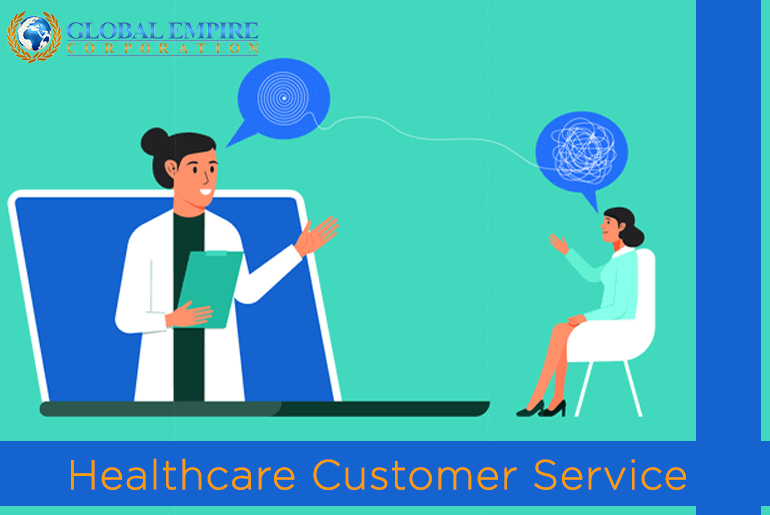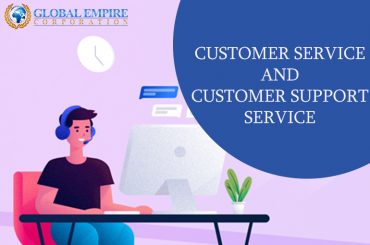When you consider businesses where outstanding customer service is crucial, you may think of hospitality, aviation, or even retail. Healthcare is unlikely to be the first sector that comes to mind.
However, the truth remains that healthcare is fundamentally a customer service sector and therefore there are reasons to outsource customer service. While hectic clinics and emergency rooms may not always portray the ideal of customer service, it is obvious that consumers (or patients in this situation) are largely reliant on the quality of treatment offered and the daily contact between staff and patients.
Patients are now more aware than ever:
Patients are more aware than before of their options and prices when it comes to seeing the doctor or the hospital. As a result, healthcare is now seen as a taxable product or service. A patient who is dissatisfied with the physicians, the customer service personnel, or a technological difficulty will look for a different medical facility. When patients are delighted, they are more likely to return and spread the word about the clinic or hospital.
Healthcare customer service=Quality care
While an organization may have the brightest minds in operating rooms and the most conscientious support personnel, if customer service falls short of expectations, healthcare quality will inevitably decrease. If a patient is unable to reach out to critical resources (in this example, physicians and nurses) promptly, not only do they feel disheartened, but the healthcare organization also does damage to itself and the profession. By integrating medical treatment and patient desires, healthcare customer service guarantees that demands and means of meeting those needs are perfectly harmonious.
Follow-up and follow through on patient feedback.
Receiving and getting feedback is important because patient surveys are becoming more and more important. The Hospital Assessment of Healthcare Providers and Systems (HCAHPS) is one of the surveys that look at how well medical staff communicate with patients and how well they treat them. Knowing what your patients think about their experience at your office is very important. People who use these tools can diagnose problems and figure out how to give better treatment in the future.
Appointment scheduling
This is often the initial point of contact for a patient with a hospital/clinic. Typically, you would gather basic information about the patient and their healthcare requirements to schedule an appointment. As a healthcare provider, you can streamline this experience by improving the intuitiveness of your data collection process, reducing wait times to chat/talk with an agent, implementing an accurate and user-friendly appointment booking software on your website, and providing instant appointment affirmation emails/text messages. Additionally, you may execute a system that sends reminder texts and emails before appointments.
Continuation of Care
Numerous healthcare encounters need several activities and sometimes multiple appointments. Practitioners may be required to refer patients for testing, schedule follow-up consultations, or refer them to other practitioners. You should know how customer service can turn into a successful marketing tool as customer service experience in healthcare is not always limited to a single session or transaction. Customer perceptions are formed because of their whole, end-to-end experience.
Healthcare organizations may enhance this aspect of the customer service experience by streamlining the process of recommendations and transfers to other providers. Customer service systems may assist practitioners in locating referral resources, scheduling appointments on the customer’s behalf, and placing test orders. This demonstrates to the patient that the healthcare organization cares about his or her full health and is not only interested in completing a transaction.
Post-appointments follow up
Next, the patient must maintain excellent health and avoid a recurrence after being released from the medical facility. A simple email or phone call may develop a personal connection with the patient and answer any questions or concerns he or she may have about post-treatment care. Excellent healthcare customer service experience guarantees that a medical institution handles all of these issues simply and efficiently.
There is no denying that customer service has devolved into a very rotten component of almost every company with which we interact regularly. And the healthcare business, which is considered a righteous branch of our society, has started to embrace the customer service component of providing medical treatment to patients. It will be fascinating to observe how it develops shortly to ensure that patients get the more sophisticated and timely medical treatment they need.
Wrapping up
There are no boundaries to what a healthcare provider can do to enhance the patient experience, from integrating technology at every touchpoint to providing the highest level of care and empathy.
Opt for customer support for the healthcare industry which helps you go ahead and provide your patients with the quality medical treatment they need and deserve.
Also Read: How Customer Experience in Insurance Can Make Your Business Fly High





